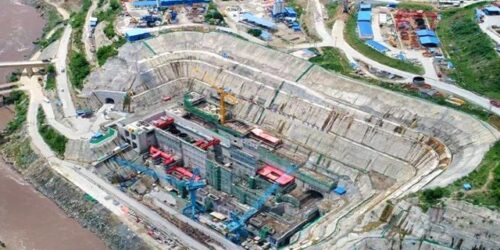Pakistan hit an all-time high power production level at 16,078 Gigawatt hours (GWh) in a month in August on the back of strong demand for energy from industries amid expansion and households adding appliances and gadgets in their daily usage.
The growth in electricity generation is in line with the government’s policy to make maximum utilisation of the surplus power production capacity available in the country, as the excessive installed capacity is causing rise in the circular debt.
Unfortunately, the positive development is achieved at a higher cost. The significant increase in price of fuels (oil, gas and coal) used to generate power during the month increased power tariff and monthly bills for the end-consumers. Pakistan produced record high power at 16,078 GWh in August.
This was almost 10% high compared to 14,630 GWh produced in the same month last year, Arif Habib Limited’s analyst Rao Aamir Ali said citing National Electric Power Regulatory Authority’s (Nepra) data. “Power production has apparently surged on additional demand coming from increased industrial output, setting up of new industrial units and expansion of the existing ones,” Reon Energy CEO Mujtaba Haider Khan said while talking to The Express Tribune.
He said the shift of industries from self-generation through gas-based captive power plants to the national grid station under the government directed policy is another apparent reason for the jump in electricity generation during the month. Industrial sector is not the only area performing well in the wake of the government’s pro-growth and businessfriendly policies, but the other two major components of the domestic economy; agriculture and services sectors, are also making headway and generating additional demand for electricity in the country.
Pakistan’s central bank reported the other day “the pace of economic recovery has exceeded expectations”. Most high-frequency domestic demand indicators such as automobiles, POL (petroleum, oil and lubricants) sales, cement sales and electricity generation continued to depict robust growth. Large-scale manufacturing (LSM) registered strong growth in June (18.5% yearon-year) before moderating in August to 2.2%, in line with typical seasonal patterns.
“The services sector is also rebounding strongly; latest Google Community Mobility Reports show that activity across grocery stores, restaurants, and shopping centres during July and August rose above pre-Covid levels. In agriculture, the decline in the area under cultivation of cotton is expected to be compensated by an increase in area for rice, maize, and sugarcane,” according to the State Bank of Pakistan (SBP).
Besides, it was learnt, residential consumers have continued to upgrade their homes with electrical and electronic goods including high power consuming splits, other home appliances and gadgets. The higher generation of electricity was achieved through taking additional production from power plants on furnace oil, nuclear, wind, bagasse, solar and hydel, Ali added. “Major contributors during August 2021 were hydel (having 35% share in the total production), RLNG (share: 18%), coal (share: 14%), nuclear (share: 10%), furnace oil (share: 10%), gas (share: 8%), wind (share: 3%) and solar (share: 0.4%),” he said.
The furnace oil based generation was up by 105% in August compared to the same month of last year. Nuclear power production increased by 100%, wind by77%, bagasse by 20%, solar by 12%, while hydel generation increased by 2% in the month.
However, the generation based on high speed diesel declined by 80%, coal by 9%, gas by 6% and RLNG-based generation dropped by 5% in the month compared to the same month last year, he added. During August 2021, however, fuel cost for power generation increased by 57% to Rs6.41/Kilowatt hours (KWh) mainly due to rise in RLNG, coal, furnace oil and gas based cost of generation. RLNG-based cost of generation increased by 91% to Rs13.44/KWh.





